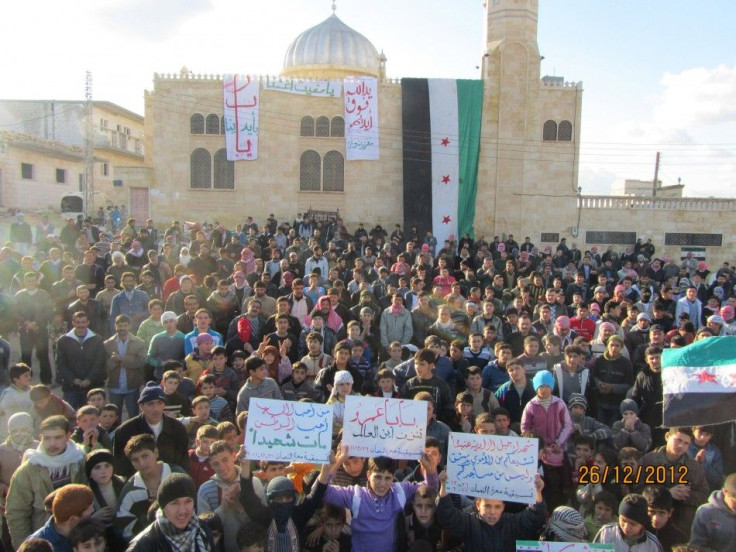Arab League Monitors Spread Out Across Syria as Violence Persists

A team of Arab League monitors will begin its third day of observation Thursday by visiting three more Syrian cities, following the Syrian government's announcement that it had released 755 prisoners and the observers' leader saying he had seen nothing frightening during an initial trip to the violence-plagued city of Homs.
The monitors are tasked with ensuring Syrian authorities comply with the deal it signed with the Arab League, which entails the withdrawal of troops, the freeing of political prisoners and negotiations with the opposition in order to bring an end to a nearly 10-month-long crackdown on an uprising against Syrian President Bashar al-Assad.
On Tuesday, the observers, the first international involvement on the ground in Syria, visited Homs; they are due to visit flashpoints around Damascus, as well as the northern and central cities of Idlib and Hama and southern Daraa province - the cradle of the protest movement.
Sudanese General Mustafa Dabi, chief of the monitoring contingent, said he saw nothing frightening on a first visit to protest-riddled Homs, but on the second day of monitoring in the Homs neighborhood of Baba Amr, which was subject to a four-day attack by troops and tanks, locals refused to talk to the monitors in the presence of a Syrian army colonel.
Some places looked a bit of a mess, but there was nothing frightening, Dabi said. The situation seemed reassuring so far, but, remember, this was only the first day it will need investigation. We have 20 people who will be there for a long time.
Human rights campaigners say, on the other hand, that Dabi is not the right choice to head the mission, as he has been linked to genocide in Sudan for which that country's president is sought by the International Criminal Court for war crimes, MSNBC reported.
The Syrian state media reported Wednesday that 755 prisoners had been released; more than 2,500 were reportedly released last month. But human rights activists say hundreds of inmates were transferred shortly before the arrival of the observers.
Sarah Leah Whitson, of Human Rights Watch, said the release of some prisoners was a good sign, the Washington Post reported, but expressed concern about the transfer of others ahead of the monitors' inspections.
And while opposition activists maintain that the government will try to bend the mission to fit its own ends, Washington urged them to give Dabi a chance.
We need to let this mission get up and running, let them do their job and then let them give their judgment, State Department spokesman Mark Toner said in Washington.
The United States, the European Union, Turkey and the Arab League have all imposed economic sanctions on Syria. For months, Syria resisted pressure from fellow members of the 22-state League to allow monitors to enter the country -- it finally relented last month, but, still, the violence has not ended.
On Wednesday, the Agence France Presse reported that Syrian forces fired on protestors at a hub near Damascus and killed at least 11 people. At least three other demonstrators were killed and several wounded in Douma, the protest center north of the capital.
The Syrian Observatory for Human Rights said the shooting broke out as the observers arrived at Douma's city hall.
The United Nations has estimated that nearly 5,000 people have been killed in Syria since the start of the uprising in March. Al-Assad maintains that he is combating Islamic terrorism from abroad, alleging that more than 2,000 security personnel have been killed.
© Copyright IBTimes 2024. All rights reserved.





















